

Glossary
Definitions of Reproductive Medicine Terminology



This glossary is a list of definitions of the most commonly used terms in reproductive medicine.


Glossary of Reproductive Treatments Terminology
Antral follicles
Small fluid-filled sacs within the ovaries that contain an immature egg, or oocyte. These follicles are visible on ultrasound and are present in women’s ovaries from birth. The number of antral follicles is an indicator of ovarian reserve (a woman’s fertility potential).
Assisted Hatching
An in vitro procedure in which an embryo’s zona pellucida (eggshell) is perforated by chemical, mechanical, or laser methods to assist the hatching of the blastocyst.
Assisted reproductive technology (ART)
All treatments or procedures that include the in vitro handling of both human oocytes (eggs) and sperm or of embryos for the purpose of establishing a pregnancy.
Biochemical pregnancy
A pregnancy diagnosed only by detecting hCG (pregnancy hormone) in serum or urine and that does not develop into a clinical pregnancy.
Blastocyst
An embryo (80 or more cells), 5 or 7 days after fertilization, with an inner cell mass, the outer layer of trophectoderm (will form the embryonic side of the placenta ), and a fluid-filled blastocele cavity at the center.
Clinical pregnancy
A pregnancy diagnosed by visualization of one or more gestational sacs on an ultrasound. It includes ectopic pregnancy. Note: multiple gestational sacs are counted as one clinical pregnancy.
Clinical pregnancy rate
The number of clinical pregnancies expressed per 100 initiated cycles, egg retrieval cycles, or embryo transfer cycles.
Clinical pregnancy with a fetal heartbeat
Pregnancy diagnosed by ultrasound of at least one fetus with a heartbeat. It includes ectopic pregnancy.
Cryopreservation
The freezing or vitrification and storage of gametes (sperm and eggs), zygotes (fertilized egg), embryos, or ovarian/testicular tissue.
Cryopreserved embryo transfer cycle
Process of preparing the endometrial lining for implantation, thawing cryopreserved (frozen) embryos, their culture, and transfer inside the uterus.
Ectopic pregnancy
A pregnancy in which implantation occurs outside the uterine cavity.
Egg retrieval
A procedure of retrieving eggs from the ovaries in order to be fertilized outside of the body. During egg retrieval, a doctor uses an ultrasound to guide a thin needle through the vaginal wall and into the ovary. The needle is then used to suction the fluid and eggs out of the ovarian follicles.
Embryo
The product of the division of the zygote (fertilized egg) to the end of the embryonic stage, 8 weeks after fertilization.
Embryo biopsy
Embryo biopsy is performed by creating an opening in the eggshell around the embryo. It is possible to safely remove six to eight cells through this opening using a special microscope with micromanipulators. The removed cells are used for Preimplantation Genetic Testing (PGT).
Embryo donation
The transfer of an embryo resulting from gametes (sperm and eggs) that did not originate from the recipient and her partner.
Embryo genetic analysis
Analysis of embryos for the detection of genetic, structural, and/or chromosomal alterations.
Embryo/fetus reduction
A procedure to reduce the number of viable embryos or fetuses in a multiple pregnancy.
Embryo transfer (ET)
A procedure in which one or more embryos are placed in the uterus.
Endometrial cavity
The flattened space within the uterus communicating at the top on either side with the fallopian tubes and below with the vagina.
Endometriosis
Endometriosis is a condition in which endometrial cells of the inner uterine lining (endometrium) can be found outside the uterus.
Fallopian Tubes
The uterine tubes, also known as oviducts or fallopian tubes, are long, slender tubes that connect the ovaries to the uterus. Eggs pass from the ovaries, through the fallopian tubes, to the uterus.
Follicular fluid
Follicular fluid is the fluid that surrounds the developing egg, or oocyte, within a follicle in the ovary. It is produced by cells lining the follicle and contains various substances such as hormones, nutrients, and growth factors necessary for the oocyte’s development and maturation.
Fertilization
The penetration of the egg by the sperm and the combination of their genetic material resulting in the formation of a zygote (fertilized egg).
Fetus
The product of fertilization from completion of embryonic development, at 8 completed weeks after fertilization, until birth.
Fibroids
Fibroids are excessive non-cancerous growth of muscle cells originating from the uterine wall. Most of them stay small, but fibroids can grow and weigh several pounds on rare occasions.
Frozen embryo transfer cycle (FET)
An ART procedure in which uterine stimulation is carried out with the intention of transferring frozen-thawed embryo(s).
Gestational carrier (surrogate)
A woman who carries a pregnancy with an agreement that she will give the offspring to the intended parent(s). Gametes (eggs and sperm) can originate from the intended parents or a third party (or parties).
Gestational sac
A fluid-filled structure associated with early pregnancy, which may be located inside or outside the uterus (in case of an ectopic pregnancy).
Granulosa cells
Granulosa cells surround the developing egg, or oocyte, within a follicle in the ovary. They play an important role in the process of the development of ovarian follicles and their contents. They secrete various substances, such as hormones and growth factors, necessary for the oocyte’s growth and maturation.
Hatching
The process by which an embryo at the blastocyst stage separates from the zona pellucida (eggshell).
ICSI
In ICSI, a single live sperm is inserted directly into the center of an egg. ICSI can be used even if there are only occasional sperm found in a semen sample.
Implantation
The attachment and subsequent penetration by the zona-free (after hatching out of its eggshell) blastocyst (usually in the endometrium-uterine lining) that starts 5 to 7 days after fertilization.
Implantation rate
The number of gestational sacs observed divided by the number of embryos transferred.
In vitro fertilization (IVF)
An ART procedure that involves extracorporeal fertilization
Infertility (clinical definition)
A disease of the reproductive system defined by the failure to achieve a clinical pregnancy after 12 months or more of regular unprotected sexual intercourse.
Intracytoplasmic sperm injection (ICSI)
A procedure in which a single sperm is injected into the oocyte cytoplasm (inside the egg).
IVF treatment cycle
Completion of ovarian stimulation, the egg retrieval procedure, insemination of eggs, laboratory culture of resulting embryos, and an embryo transfer.
Live birth delivery rate
The number of deliveries that resulted in at least one live-born baby, expressed per 100 initiated cycles, egg retrieval cycles, or embryo transfer cycles.
Micromanipulation
A technology that allows micro-operative procedures to be performed on the sperm, oocyte (egg), the zygote (fertilized egg), or embryo.
Mild ovarian stimulation for IVF
A procedure in which the ovaries are stimulated with gonadotropins (injectable medications) and/or other compounds, with the intent to limit the number of oocytes obtained for IVF to fewer than seven.
Myomas
Fibroids are excessive non-cancerous growth of muscle cells originating from the uterine wall. Most of them stay small, but fibroids can grow and weigh several pounds on rare occasions.
Natural cycle IVF
An IVF procedure in which one or more oocytes (eggs) are collected from the ovaries during a spontaneous menstrual cycle without drug use.
Normal sperm morphology
Percentage of sperm which are without head and tail defects. It should be at least 4% but preferably higher.
Oocyte donation cycle
Donor Egg IVF is a treatment in which oocytes (eggs) are collected from a donor for clinical application.
Oocyte recipient cycle
An ART cycle in which a woman receives oocytes (eggs) from a donor.
Ovarian hyperstimulation syndrome (OHSS)
An exaggerated systemic response to ovarian stimulation characterized by a wide spectrum of clinical and laboratory manifestations. It is classified as mild, moderate, or severe according to the degree of abdominal distention, ovarian enlargement, and respiratory, hemodynamic, and metabolic complications.
Ovarian stimulation for IVF
Pharmacologic treatment in which ovaries are stimulated to induce the development of multiple ovarian follicles to obtain multiple oocytes (eggs).
Polycystic ovary syndrome
Polycystic ovarian syndrome can make it difficult for a woman to ovulate. This lack of ovulation is accompanied by a hormonal imbalance that, in some women, involves abnormal insulin production and glucose metabolism. Polycystic ovaries are by far the most common cause of a lack of ovulation.
Polyps
Overgrowth of endometrial lining can create polyps. They are fingerlike growths that attach to the inner wall of the uterus.
Preimplantation genetic testing (PGT)
Analysis of embryos for the detection of genetic, structural, and/or chromosomal alterations.
Recurrent spontaneous abortion/miscarriage
The spontaneous loss of three or more clinical pregnancies.
Saline ultrasound (Sonohysterogram)
A thin, soft catheter is passed through the cervix into the uterus, and a small amount of sterile saline solution is gently instilled. A transvaginal ultrasound is used to confirm the absence of polyps, scarring, or fibroids inside the uterus.
TESA
Testicular sperm aspiration.
Vanishing sac(s) or embryo(s)
Spontaneous disappearance of one or more gestational sacs or embryos in an ongoing pregnancy, documented by ultrasound.
Vitrification
An ultra-rapid cryopreservation method that prevents ice formation.
Zygote
A diploid cell resulting from the fertilization of an oocyte (egg) by a sperm, which subsequently divides to form an embryo.


Schedule Your Initial Consultation With Dr. Polansky
Online (No Cost) or In-Person
You can also complete the form below to request your initial consultation



